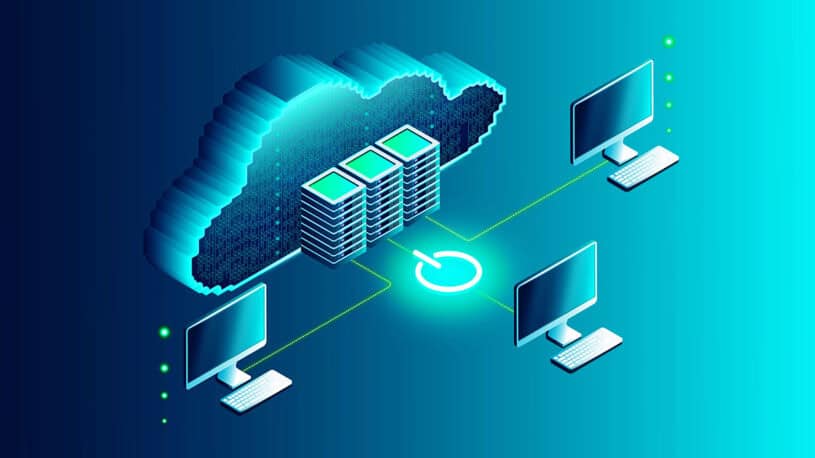

How San Marcos Cloud IT Transforms Retail with Scalability
The retail industry is going through a major change thanks to San Marcos cloud IT. Retailers are using cloud solutions to modernize their operations, improve customer experiences, and cut costs. Here are some key aspects of this shift:
- Seamless Scalability: Cloud technology allows retailers to easily scale their resources based on fluctuating demands. This adaptability maintains optimal performance during peak shopping periods.
- Efficiency: Automation and streamlined workflows provided by cloud-native platforms facilitate smoother operations, enabling retailers to respond rapidly to market changes.
By adopting cloud IT alongside robust strategies and data backups in San Marcos TX, retailers can become more efficient and gain a competitive advantage. Today, the combination of easy scalability and efficiency is critical for long-term growth..
Table of Contents
Exploring Edge Cloud Technology
Edge cloud technology refers to the practice of processing data closer to where it’s generated, rather than relying on a centralized data center. This approach is helpful for retailers aiming to enhance their operational efficiency and customer engagement.
Benefits of Edge Cloud Technology
1. Reduced Latency
By localizing data processing, edge computing minimizes the time taken for data to travel between servers and devices. This reduction in latency leads to:
- Faster Transactions: Customers experience quicker checkouts, resulting in fewer abandoned carts.
- Improved Customer Experiences: Instant responses to queries enhance satisfaction and loyalty.
2. Real-Time Decision-Making
Edge cloud solutions empower retailers with the ability to analyze data as it’s generated. This capability allows:
- Localized Data Processing: Retailers can make informed decisions based on real-time inventory levels, customer behavior, and sales trends.
- Dynamic Pricing Adjustments: Prices can be modified instantly based on demand fluctuations or competitor actions.
The integration of edge cloud technology transforms retail operations by providing faster service and enabling timely strategic decisions. Embracing this innovation creates opportunities for better customer interactions and streamlined processes.
Advantages of Cloud Solutions for Retail Growth
Seamless scalability is vital for retailers facing fluctuating demands and the need to expand operations. Cloud solutions offer a robust framework that allows businesses to adapt quickly to market changes. Key benefits include:
1. Resource Scaling
Cloud-native platforms enable retailers to scale resources based on real-time needs. This keeps performance optimal during peak periods without over-provisioning or underutilization.
2. Operational Efficiency
Automated processes and streamlined workflows go a long way towards enhancing operational efficiency. By leveraging scalable cloud solutions, retailers can reduce manual tasks, freeing up staff to focus on customer engagement and strategic initiatives.
3. Cost Management
The pay-as-you-go model associated with cloud services means retailers only pay for what they use, making it easier to manage costs while still maintaining flexibility.
Improving Customer Experience with Cloud IT Solutions for Retail & Commerce Growth
Cloud solutions enhance customer satisfaction by enabling personalized experiences. The ability to customize interactions based on individual preferences is a game-changer for retailers. Here are the keyways cloud IT solutions improve customer experience:
1. Personalized Interactions
Cloud technology enables retailers to gather and analyze large amounts of customer data, creating tailored communications that resonate with each shopper.
2. Targeted Marketing Strategies
Using cloud-based Customer Relationship Management (CRM) systems allows retailers to effectively segment their audience. By understanding purchasing behaviors and preferences, strategies can be adapted to target specific demographics, increasing engagement rates.
3. Data Analytics
Real-time data analytics powered by the cloud provides insights into customer behavior. Retailers can track trends, monitor feedback, and quickly adjust their offerings based on what resonates most with shoppers.
4. Tailored Offerings
The integration of cloud solutions allows for the delivery of customized products and services that meet unique consumer needs. This enhances customer loyalty while driving sales growth.
By leveraging these capabilities, retailers can create a seamless shopping experience that leads to sustained commerce growth in an increasingly competitive landscape.
Maintaining Data Security and Compliance with Cloud Technology in Retail Operations
In the retail sector, data security is integral. With sensitive customer information at risk, strong measures are necessary to prevent breaches and build trust. Retailers must prioritize the following areas:
1. Sensitive Data Protection
Implementing encryption, firewalls, and multi-factor authentication safeguards against unauthorized access. Protecting customer data fosters confidence and loyalty.
2. Local Data Processing
Utilizing edge cloud technology allows for local data processing. This minimizes cross-border data transfers, reducing risks associated with international regulations.
3. Transparent Data Practices
Clear communication about data collection and usage enhances customer trust. Retailers should keep customers informed about their rights and protections.
Improving Retail Operations with Cloud Technology
Cloud technology greatly improves retail operations by providing efficient real-time inventory management systems. These systems offer:
Benefits of Real-Time Inventory Management
- Accurate Stock Tracking: Continuous monitoring of stock levels prevents overstocking and stockouts, so retailers maintain optimal inventory.
- Timely Replenishment Alerts: Automated notifications alert staff to reorder products before they run out, reducing the risk of lost sales due to unavailable items.
Cloud solutions enable dynamic pricing strategies. Retailers can adjust prices in real-time based on factors such as:
Factors Influencing Dynamic Pricing
- Market Fluctuations: Pricing can be optimized according to demand trends or competitor pricing, maximizing revenue opportunities.
- Customer Behavior: Analyzing purchasing patterns enables personalized pricing adjustments, enhancing customer satisfaction and loyalty.
The integration of these technologies streamlines workflows and improves operational efficiency. Automated updates make it easier to implement new features or fix problems, allowing retailers to focus on their main business pursuits instead of managing IT tasks.
Choosing the Right Cloud Provider for Your Retail Business
Selecting a cloud provider is a critical decision that can noticeably impact your retail operations. Consider the following key factors to maintain alignment with your business needs:
- Reliability: Look for providers with a proven track record of uptime and performance. A reliable cloud provider minimizes downtime, enabling your operations to run smoothly, especially during peak shopping seasons.
- Security Features: Prioritize providers that offer robust security measures. Features such as data encryption, firewalls, and multi-factor authentication protect sensitive customer information from breaches.
- Support Availability: Evaluate the level of support your provider offers. 24/7 customer service guarantees quick resolution of issues, vital for maintaining operational efficiency.
- Scalability Options: The provider should accommodate growth without compromising performance. Scalable solutions allow you to adjust resources based on real-time demands.
Utilizing Cloud IT Solutions to Propel Retail & Commerce Growth
Cloud IT has a diverse impact on the retail industry. Here are the main points that highlight its importance:
1. Seamless Scalability
Cloud solutions adapt to fluctuating demands, so retailers can grow without infrastructure constraints.
2. Operational Efficiency
Automated processes streamline workflows, enhancing productivity and reducing costs.
3. Customer-Centric Innovations
Data-driven insights enable personalized experiences, fostering customer loyalty and satisfaction.
Retailers who use cloud technology are seeing incredible results, such as:
- Enhanced agility in responding to market trends.
- Improved inventory management through real-time data access.
- Increased operational efficiency leading to higher profitability.
Cloud IT is a strategic move towards sustainable growth. The journey towards modernization and improved customer engagement begins with strategic IT growth.
Frequently Asked Questions About Cloud IT
What is the role of cloud IT in retail growth?
Cloud IT plays a transformative role in retail by providing seamless scalability and operational efficiency, which in turn drive growth. Retailers can adapt to fluctuating demands, streamline operations, and improve customer experiences through cloud solutions.
How does edge cloud technology improve retail operations?
Edge cloud technology reduces latency in retail IT systems, allowing real-time decision-making and faster transactions. By processing data locally, retailers can boost customer experiences and respond quickly to market changes.
What are the advantages of using cloud-native platforms in retail?
Cloud-native platforms allow retailers to scale resources according to real-time needs, maintaining optimal performance during peak periods. This scalability leads to improved operational efficiency through automated processes and streamlined workflows.
How can cloud IT enhance customer satisfaction in retail?
Cloud IT improves customer satisfaction by enabling personalized experiences through data analytics and CRM systems. Retailers can deliver tailored offerings that resonate with individual preferences, improving engagement and loyalty.
What measures should retailers take to maintain data security with cloud technology?
Retailers must implement data security measures to protect sensitive customer information. Compliance with regulations is essential, and reputable San Marcos managed service provider offer comprehensive frameworks to meet these requirements and IT compliance in San Marcos.
What factors should retailers consider when choosing a cloud provider?
When selecting a cloud provider, retailers should consider reliability, security features, support availability, and the ability to meet specific business needs. A suitable provider will align with the retailer’s operational goals and provide seamless integration, including specialized retail tech support in San Marcos to keep systems running optimally.
Table of Contents









